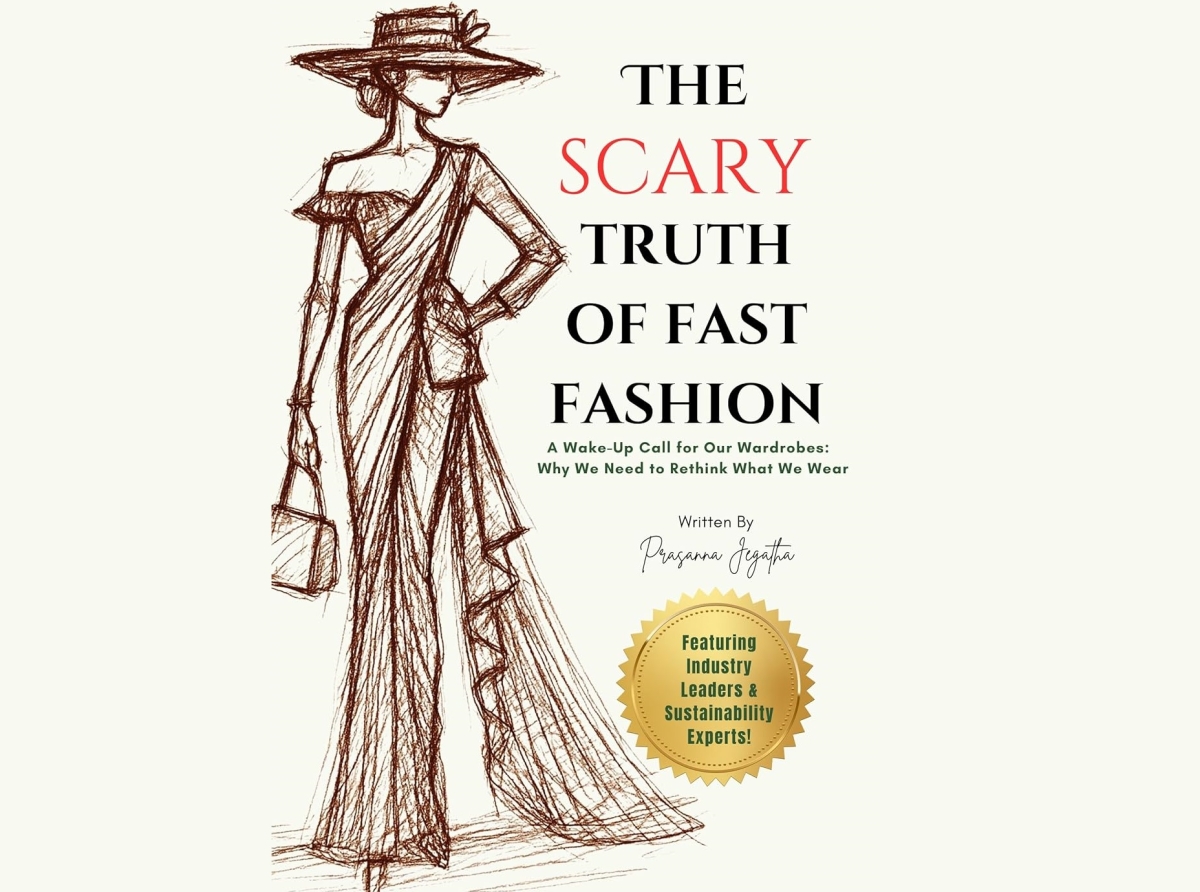New book "The Scary Truth Of Fast Fashion" aims to unravel industry's impact and empower consumers

24 May, Mumbai 2025
A collective effort, authored by eco-fashion entrepreneur Prasanna Jegatha V.G, seeks to educate and inspire a shift towards sustainable practices.
A new book, "The Scary Truth Of Fast Fashion," is sounding the alarm on the detrimental effects of the mass-market clothing industry while offering a roadmap towards a more conscious and sustainable future. Authored by Prasanna Jegatha V.G, founder of the eco-fashion brand Jegadhnis, the book launched recently, drawing on the expertise of 20 contributors – a diverse group of experts, advocates, and visionaries.
The central message, as emphasized by Jegatha in a statement, is that "conscious choices in fashion can create real, lasting change." "The Scary Truth Of Fast Fashion" aims to be a pivotal tool to "influence consumers, inspire entrepreneurs in fashion, educate students, and enlighten everyone who wears clothes."
The book promises to delve deep into the hidden narratives behind everyday garments. Written in accessible language and filled with relatable examples, it confronts the realities the fast fashion industry often obscures: its profound impact on garment workers, the environment, and even consumer well-being. Readers will explore the explosion of fast fashion in recent decades, the harsh realities of factory conditions, the marketing tactics driving overconsumption, and the damaging effects of synthetic fabrics, chemical dyes, and microplastic pollution. It also tackles the often-misunderstood issue of textile waste and the limitations of current recycling solutions.
However, Jegatha stresses that the book is "not about blame or fear—it’s about awareness and empowerment." It seeks to equip readers with practical knowledge, such as how to identify "greenwashing" and misleading eco-friendly claims. Furthermore, it offers guidance on building a mindful, sustainable wardrobe without excessive cost and shares inspiring real-life stories of ethical designers, artisans, and changemakers who are pioneering a better fashion future.
"The Scary Truth Of Fast Fashion" directly addresses common consumer questions like, "What’s the harm in buying cheap clothes?" and "Is sustainable fashion only for the wealthy?" asserting that individuals can indeed make a difference. It encourages readers to rethink their shopping habits, reconnect with the stories behind their clothes, and align their fashion choices with their ethical values.
Jegatha's vision for the book is clear: "Let’s expose the truth of fast fashion. Let’s guide the world towards sustainable fashion & conscious consumerism. For a greener planet, rejoicing in the gifts of nature — preserving, protecting, and celebrating it in bliss." She emphasizes that the journey towards sustainable fashion doesn't require perfection, simply a willingness to start. "This book won’t overwhelm you," she concludes. "It will empower you."
Latest Publications

































